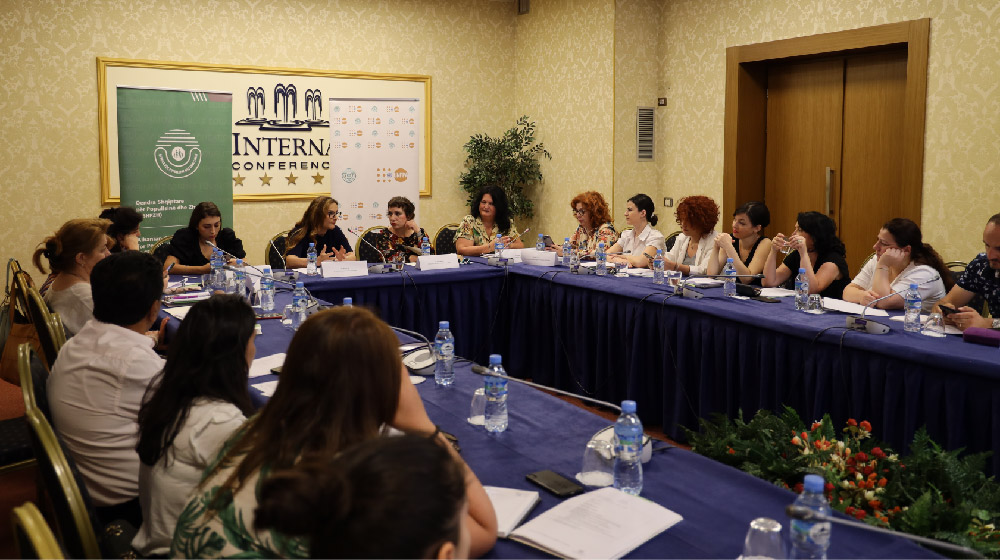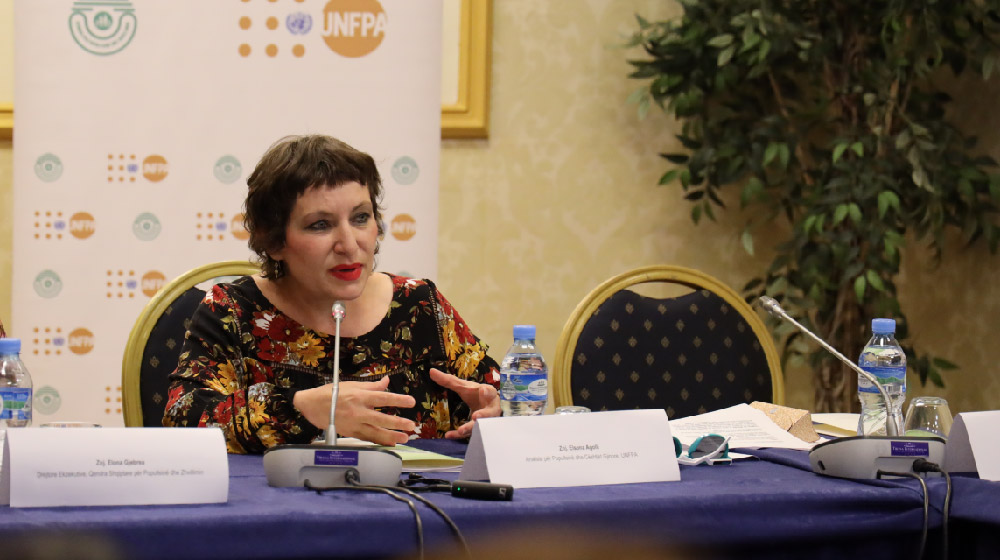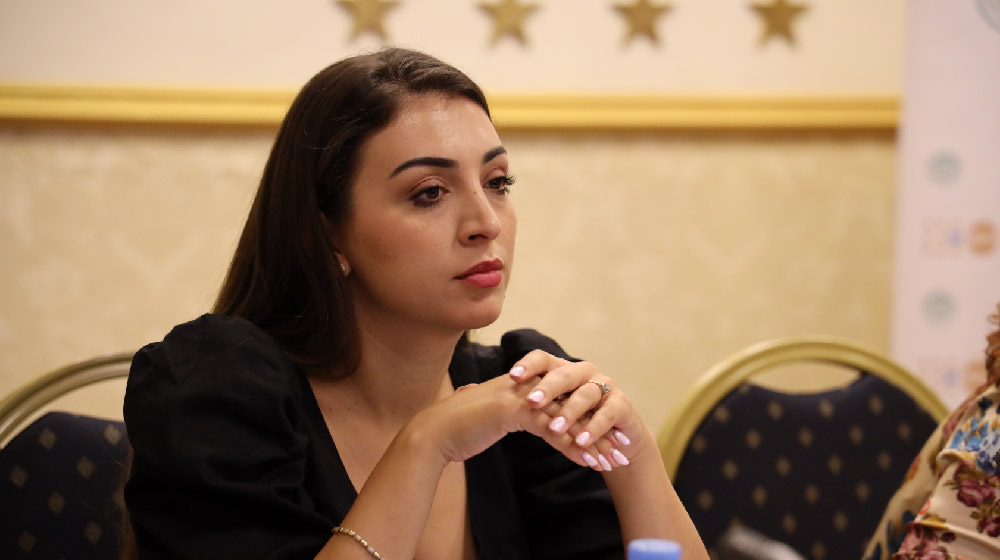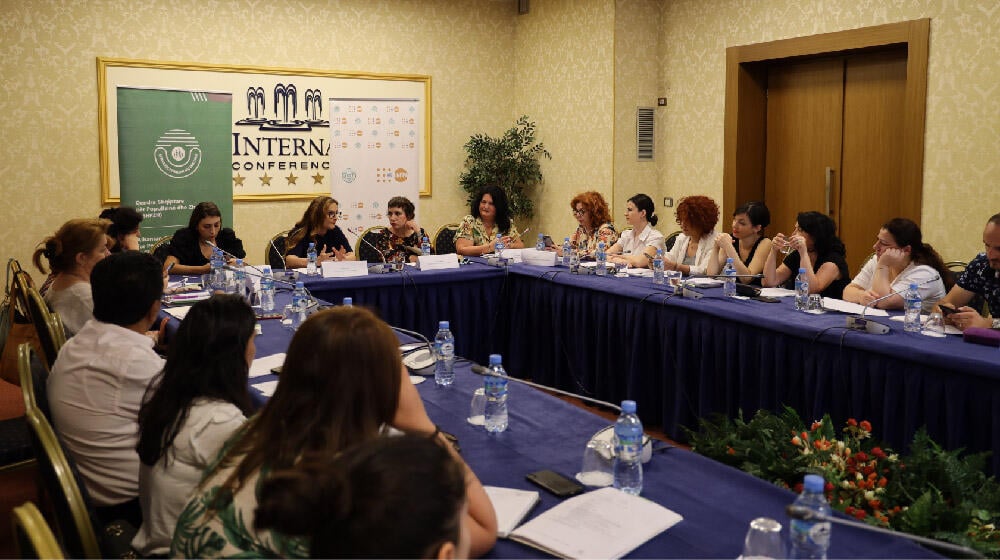"No one is left behind" is one of the interventions that UNFPA in Albania is committed to addressing through the establishment and strengthening of integrated services for the elderly. Statistical data show an increase of older persons, age 65 and above, who require long-term care.
Political actors and civil society play a crucial role in addressing the challenges faced by older persons and the social care system through which they receive integrated services and care.
The Albanian Center for Population and Development (ACPD), an implementing partner of UNFPA, is working to create appropriate and necessary models that municipalities should adopt to respond to the growing need for care for persons aged over 65 in our country.

In the Municipality of Durres, in Sukth village, a successful model has been piloted regarding the approach that local institutions must take to respond to the challenges of aging and the need to provide integrated services. Response and intervention should be based on data collection and analysis.
A round table was held in Tirana on July 12, organized by ACPD with the technical and financial support of UNFPA and ILO, within the program "No one is left behind," a joint program of the United Nations, supported by the Swiss Agency for Development and Cooperation - SDC.
Elsona Agolli, Program Analyst for Population and Gender at UNFPA believes that the upcoming Census scheduled on 15th September this year will significantly contribute to a better understanding of the situation of the older persons in our country. The data collected would and should serve to make policies and strategic interventions based on needs and properly reflect the demographic changes.

"The model piloted in Sukth should serve as a starting point for making decisions regarding the interventions that need to be implemented. The only way we can contribute to the active and quality aging of the population is by designing policies based on data and facts. If the aging citizens are active and need socialization, we should focus on building policies that support active engagement. If they need healthcare, we must work to increase and bring healthcare services as close as possible to them. Albania has nearly 400,000 older residents and we must know their needs, family circumstances and status should guide our policies and actions to serve them so that no one is left behind. This is the decade of demographic resilience and our work with concrete interventions for the population should be oriented towards providing long-term care,” stated Mrs. Agolli.
According to Ms. Agolli, the Census expected in September of this year will be of great help in identifying needs and will generate crucial data about the demographic situation and demographic changes in the country. Therefore, everyone, without exception, should positively respond to the upcoming Census.
Present at the discussion table, the Director of the State Social Care Service, Mrs. Reme Lala, stated that the "National Plan for Aging 2020-2024" was approved by the decision of the Council of Ministers as a response to the demographic and social challenge of aging, in a period of demographic transformation never seen before in the history of Albania.

"The social care system is facing the need for change and restructuring to meet the ever-growing needs of the elderly. Every older citizen who needs care should receive it. “We want to consolidate active aging, an extraordinary vision in the implementation of the 2020-2024 National Plan on Ageing, which aims to build a network of complete and integrated services," said the Director of the State Social Care Service.
According to official data, demographic and structural changes in families have influenced the increase in the number of older people who are lonely or abandoned, and who show the need for increased care. Over the years, the number of elderly people who have requested support or shelter from state institutions is as follows:
• 2021 - 286 elderly individuals
• 2022 – 303 elderly individuals
• 2023 (first quarter) – 310 elderly individuals
In total, eight services dedicated to older persons have been added to the integrated services map. Out of 45 services offered in Albania's complete package, 20 of these services benefit older persons.
The current healthcare policy is focused on offering integrated services as close as possible to where the older persons live, supported by a comprehensive assessment of their needs, placing "the need for inclusion" at the center of the system.
While the methodology for assessing the needs of older persons has already been developed, explained, and promoted, a critical challenge remains in registering older persons and classifying them according to their needs. In response to this critical challenge, with the initiative and full involvement of the Municipality of Durres, the registration of the older persons in the Administrative Unit of Sukth was achieved, as well as the creation of the first database, organized and classified according to the criteria set in the methodology for assessing the complex economic, social, and health needs of the elderly.
This tool was presented in the presence of representatives from all municipalities in the country, both online and offline, who found it interesting, practical, and applicable. Most of the participants expressed positive feedback and readiness to start efforts to adopt this tool and begin its implementation in their municipalities.


